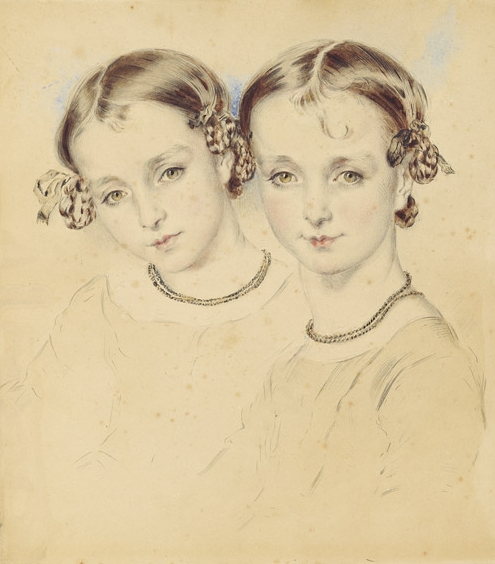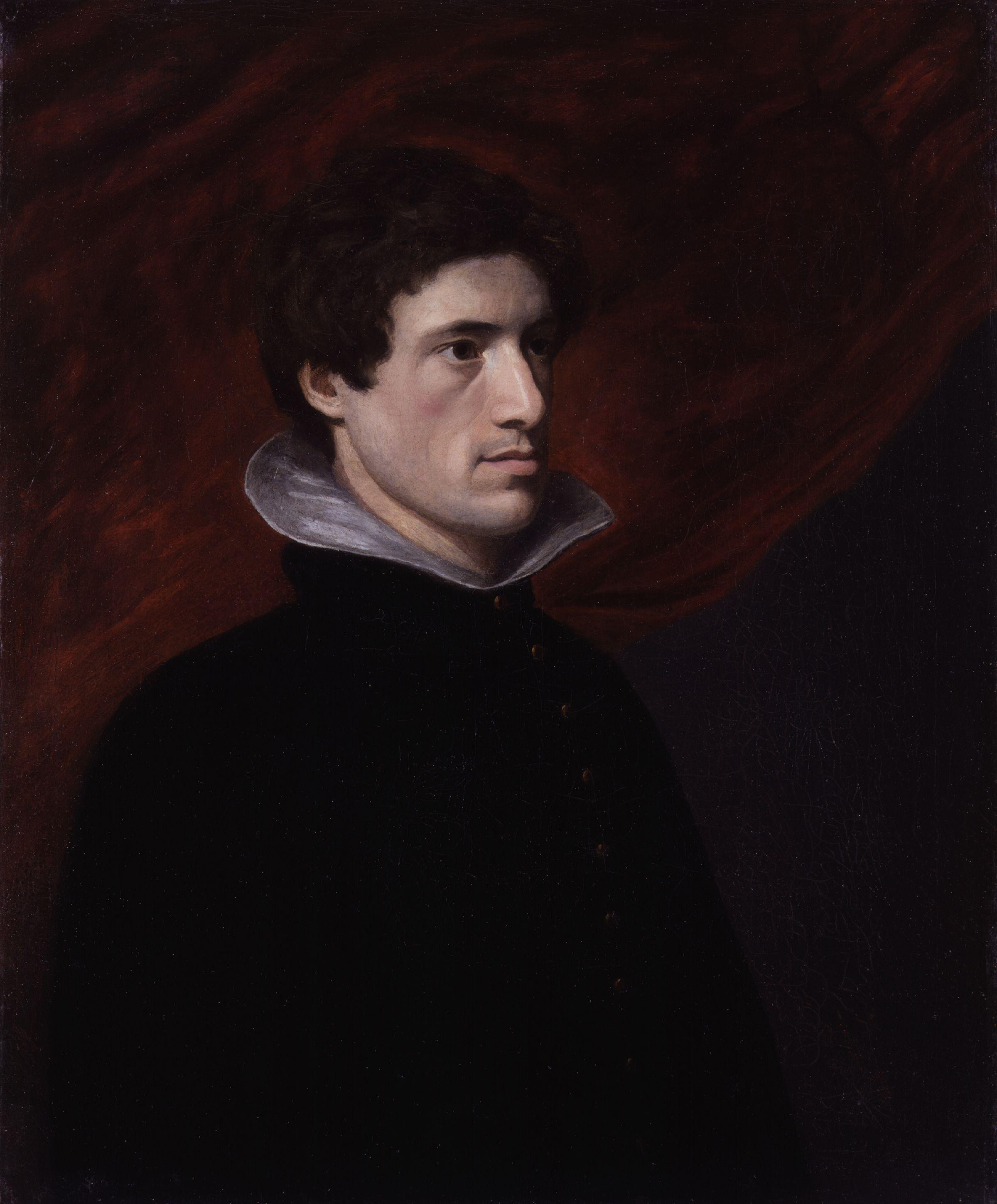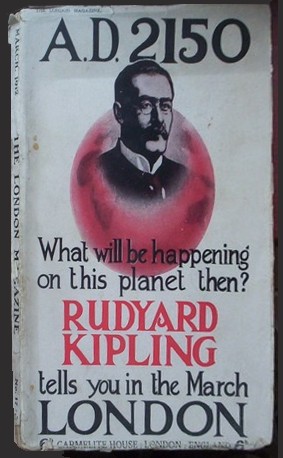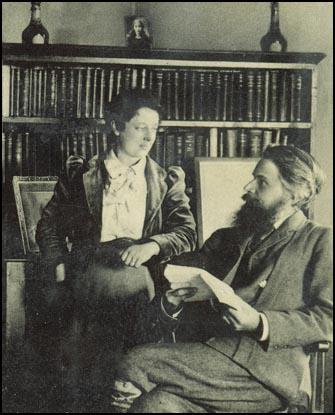|
Thomas Griffiths Wainewright
Thomas Griffiths Wainewright (October 179417 August 1847) was an English artist, author and suspected serial killer. He gained a reputation as a profligate and a dandy, and in 1837, was transported to the penal colony of Van Diemen's Land (now the Australian state of Tasmania) for frauds on the Bank of England. As a convict he became a portraitist for Hobart's elite. Wainewright's life captured the imagination of renowned 19th-century literary figures such as Charles Dickens, Oscar Wilde and Edward Bulwer-Lytton, some of whom wildly exaggerated his supposed crimes, claiming among other things that he carried strychnine in a special compartment in a ring on his finger. Early life Thomas Griffiths Wainewright was born into affluence in Richmond, London, England. He was orphaned when he was very young, his mother dying in childbirth and his father soon afterwards. Wainewright's mother Ann was the daughter of Ralph Griffiths (1720–1803), for many years the editor of the litera ... [...More Info...] [...Related Items...] OR: [Wikipedia] [Google] [Baidu] |
Richmond, London
Richmond is a town in south-west London,The London Government Act 1963 (c.33) (as amended) categorises the London Borough of Richmond upon Thames as an Outer London borough. Although it is on both sides of the River Thames, the Boundary Commission for England defines it as being in South London or the South Thames sub-region, pairing it with Kingston upon Thames for the purposes of devising constituencies. However, for the purposes of the London Plan, Richmond now lies within the West London (sub region), West London region. west-southwest of Charing Cross. It is on a meander of the River Thames, with many Richmond upon Thames parks and open spaces, parks and open spaces, including Richmond Park, and many protected conservation areas, which include much of Richmond Hill, London, Richmond Hill. A specific Richmond, Petersham and Ham Open Spaces Act 1902, Act of Parliament protects the scenic view of the River Thames from Richmond. Richmond was founded following Henry VII of ... [...More Info...] [...Related Items...] OR: [Wikipedia] [Google] [Baidu] |
Monthly Review (London)
''The Monthly Review'' (1749–1845) was an English periodical founded by Ralph Griffiths, a Nonconformist bookseller. The first periodical in England to offer reviews, it featured the novelist and poet Oliver Goldsmith as an early contributor. Griffiths himself, and likely his wife Isabella Griffiths, contributed review articles to the periodical. Later contributors included Dr. Charles Burney, John Cleland, Theophilus Cibber, James Grainger, Anna Letitia Barbauld, Elizabeth Moody, and Tobias Smollett—who would go on to establish the ''Monthly'''s competitor in 1756, ''The Critical Review''. William Kenrick, the "superlative scoundrel", was editor from 1759 to 1766. Publishing history of the ''Monthly Review'' *Volumes 1–81, May 1749–Dec. 1789; * v. 1–108, Jan. 1790–Nov. 1825; *new ser., v. 1–15, Jan. 1826–Dec. 1830; *new ser., v. 1–45, Jan. 1831–Dec. 1844. (The 4-month volumes in this series are numbered I, II, and III on the title page, restarting at I e ... [...More Info...] [...Related Items...] OR: [Wikipedia] [Google] [Baidu] |
Letters Of Charles Lamb
The 19th-century English writer Charles Lamb's letters were addressed to, among others, William Wordsworth, Samuel Taylor Coleridge, William Godwin, and Thomas Hood, all of whom were close friends. They are valued for the light they throw on the English literary world in the Romantic era and on the evolution of Lamb's essays, and still more for their own "charm, wit and quality". Manuscripts More than 1,150 of Lamb's letters survive, scattered among institutions and private collections in Britain and the United States. The largest collection, comprising about 200 letters, is in the Huntington Library in San Marino, California. There are very few existing letters addressed to Lamb apart from those sent by his friend Thomas Manning, since Lamb usually destroyed his old correspondence. Lamb wrote his letters in a "bold free hand and a fearless flourish" (his own words), which present no great difficulties to editors, though his spelling and punctuation were sometimes erratic. ... [...More Info...] [...Related Items...] OR: [Wikipedia] [Google] [Baidu] |
Charles Lamb (writer)
Charles Lamb (10 February 1775 – 27 December 1834) was an English essayist, poet, and antiquarian, best known for his ''Essays of Elia'' and for the children's book ''Tales from Shakespeare'', co-authored with his sister, Mary Lamb (1764–1847). Friends with such literary luminaries as Samuel Taylor Coleridge, Robert Southey, William Wordsworth, and William Hazlitt, Lamb was at the centre of a major literary circle in England. He has been referred to by E. V. Lucas, his principal biographer, as "the most lovable figure in English literature". Youth and schooling Lamb was born in London, the son of John Lamb (–1799) and Elizabeth (died 1796), née Field. Lamb had an elder brother and sister; four other siblings did not survive infancy. John Lamb was a lawyer's clerk and spent most of his professional life as the assistant to a barrister named Samuel Salt, who lived in the Inner Temple in the legal district of London; it was there, in Crown Office Row, that Charles Lamb ... [...More Info...] [...Related Items...] OR: [Wikipedia] [Google] [Baidu] |
Pen Name
A pen name, also called a ''nom de plume'' or a literary double, is a pseudonym (or, in some cases, a variant form of a real name) adopted by an author and printed on the title page or by-line of their works in place of their real name. A pen name may be used to make the author's name more distinctive, to disguise the author's gender, to distance the author from their other works, to protect the author from retribution for their writings, to merge multiple persons into a single identifiable author, or for any of a number of reasons related to the marketing or aesthetic presentation of the work. The author's real identity may be known only to the publisher or may become common knowledge. Etymology The French-language phrase is occasionally still seen as a synonym for the English term "pen name", which is a "back-translation" and originated in England rather than France. H. W. Fowler and F. G. Fowler, in ''The King's English'' state that the term ''nom de plume'' evolv ... [...More Info...] [...Related Items...] OR: [Wikipedia] [Google] [Baidu] |
The London Magazine
''The London Magazine'' is the title of six different publications that have appeared in succession since 1732. All six have focused on the arts, literature and miscellaneous topics. 1732–1785 ''The London Magazine, or, Gentleman's Monthly Intelligencer'' was founded in 1732 in political opposition and rivalry to the Tory-supporting ''Gentleman's Magazine'' and ran for 53 years until its closure in 1785. Edward Kimber became editor in 1755, succeeding his father Isaac Kimber. Henry Mayo was editor from 1775 to 1783. Publishers included Thomas Astley. 1820–1829 In 1820 the ''London Magazine'' was resurrected by the publishers Baldwin, Craddock & Joy under the editorship of John Scott who formatted the magazine along the lines of the Edinburgh publication ''Blackwood's Magazine''. It was during this time that the magazine published poems by William Wordsworth, Percy Bysshe Shelley, John Clare and John Keats. In September 1821 the first of two instalments of Thomas De Quinc ... [...More Info...] [...Related Items...] OR: [Wikipedia] [Google] [Baidu] |
Westminster Review
The ''Westminster Review'' was a quarterly British publication. Established in 1823 as the official organ of the Philosophical Radicals, it was published from 1824 to 1914. James Mill was one of the driving forces behind the liberal journal until 1828. History Early years In 1823, the paper was founded (and funded) by Jeremy Bentham,I Ousby ed., ''The Cambridge Guide to Literature in English'' (CUP 1995), p. 1008. who had long pondered the possibility of establishing a journal for propagating Radical views. The first edition of the journal (January 1824) featured an article by James Mill (continued in the second by his son John Stuart Mill), which served as a provocative reprobation of a rival, more well-established journal, the '' Edinburgh Review'', castigating it as an organ of the Whig party, and for sharing the latter's propensity for fence-sitting in the aristocratic interest. The controversy drew in a wide public response, much however critical: the ''Nuttall Encyclopædi ... [...More Info...] [...Related Items...] OR: [Wikipedia] [Google] [Baidu] |
Blackwood's Magazine
''Blackwood's Magazine'' was a British magazine and miscellany printed between 1817 and 1980. It was founded by the publisher William Blackwood and was originally called the ''Edinburgh Monthly Magazine''. The first number appeared in April 1817 under the editorship of Thomas Pringle and James Cleghorn. The journal was unsuccessful and Blackwood fired Pringle and Cleghorn and relaunched the journal as ''Blackwood's Edinburgh Magazine'' under his own editorship. The journal eventually adopted the shorter name and from the relaunch often referred to itself as ''Maga''. The title page bore the image of George Buchanan, a 16th-century Scottish historian, religious and political thinker. Description ''Blackwood's'' was conceived as a rival to the Whig-supporting '' Edinburgh Review.'' Compared to the rather staid tone of ''The Quarterly Review'', the other main Tory work, ''Maga'' was ferocious and combative. This is due primarily to the work of its principal writer John Wilson, who ... [...More Info...] [...Related Items...] OR: [Wikipedia] [Google] [Baidu] |
Literary Pocket-Book
The ''Literary Pocket-Book'' was a collection of works edited by Leigh Hunt and containing material by Hunt, Percy Bysshe Shelley, John Keats, and Bryan Waller Procter. The collection was put together during 1818, and proved so successful that Hunt was able to sell the copyright for £200 a year later. The collection includes written worked, lined pages to write notes on and lists of authors, artists, schools and libraries. It was a public success, bringing new readers to both Shelley and Keats, and served as a model for other collections of poetry written during the Victorian era. Critical reviews were also excellent, with ''The London Magazine'' describing it as "for the most part delightfully written", although Keats himself later wrote that the collection was "full of the most sickening stuff you can imagine". Background During the end of 1818, Hunt was putting together a collection to be called ''Literary Pocket-Book''. The works were a combination of material provided by h ... [...More Info...] [...Related Items...] OR: [Wikipedia] [Google] [Baidu] |
Havelock Ellis
Henry Havelock Ellis (2 February 1859 – 8 July 1939) was an English physician, eugenicist, writer, progressive intellectual and social reformer who studied human sexuality. He co-wrote the first medical textbook in English on homosexuality in 1897, and also published works on a variety of sexual practices and inclinations, as well as on transgender psychology. He is credited with introducing the notions of narcissism and autoeroticism, later adopted by psychoanalysis. Ellis was among the pioneering investigators of psychedelic drugs and the author of one of the first written reports to the public about an experience with mescaline, which he conducted on himself in 1896. He supported eugenics and served as one of 16 vice-presidents of the Eugenics Society from 1909 to 1912. Early life and career Ellis, son of Edward Peppen Ellis and Susannah Mary Wheatley, was born in Croydon, Surrey (now part of Greater London). He had four sisters, none of whom married. His father was a sea ... [...More Info...] [...Related Items...] OR: [Wikipedia] [Google] [Baidu] |
Mental Illness
A mental disorder, also referred to as a mental illness or psychiatric disorder, is a behavioral or mental pattern that causes significant distress or impairment of personal functioning. Such features may be persistent, relapsing and remitting, or occur as single episodes. Many disorders have been described, with signs and symptoms that vary widely between specific disorders. Such disorders may be diagnosed by a mental health professional, usually a clinical psychologist or psychiatrist. The causes of mental disorders are often unclear. Theories may incorporate findings from a range of fields. Mental disorders are usually defined by a combination of how a person behaves, feels, perceives, or thinks. This may be associated with particular regions or functions of the brain, often in a social context. A mental disorder is one aspect of mental health. Cultural and religious beliefs, as well as social norms, should be taken into account when making a diagnosis. Services are ... [...More Info...] [...Related Items...] OR: [Wikipedia] [Google] [Baidu] |
Yeomanry
Yeomanry is a designation used by a number of units or sub-units of the British Army, British Army Reserve (United Kingdom), Army Reserve, descended from volunteer British Cavalry, cavalry regiments. Today, Yeomanry units serve in a variety of different military roles. History Origins In the 1790s, following the French Revolution and the rise of Napoleon Bonaparte, the perceived threat of invasion of the Kingdom of Great Britain was high. To improve the country's defences, British Volunteer Corps, Volunteer regiments were raised in many counties from yeoman, yeomen. While the word "yeoman" in normal use meant a small farmer who owned his land, Yeomanry officers were drawn from the nobility or the landed gentry, and many of the men were the officers' tenants or had other forms of obligation to the officers. At its formation, the force was referred to as the Yeomanry Cavalry. Members of the yeomanry were not obliged to serve overseas without their individual consent. Early 19th ... [...More Info...] [...Related Items...] OR: [Wikipedia] [Google] [Baidu] |







